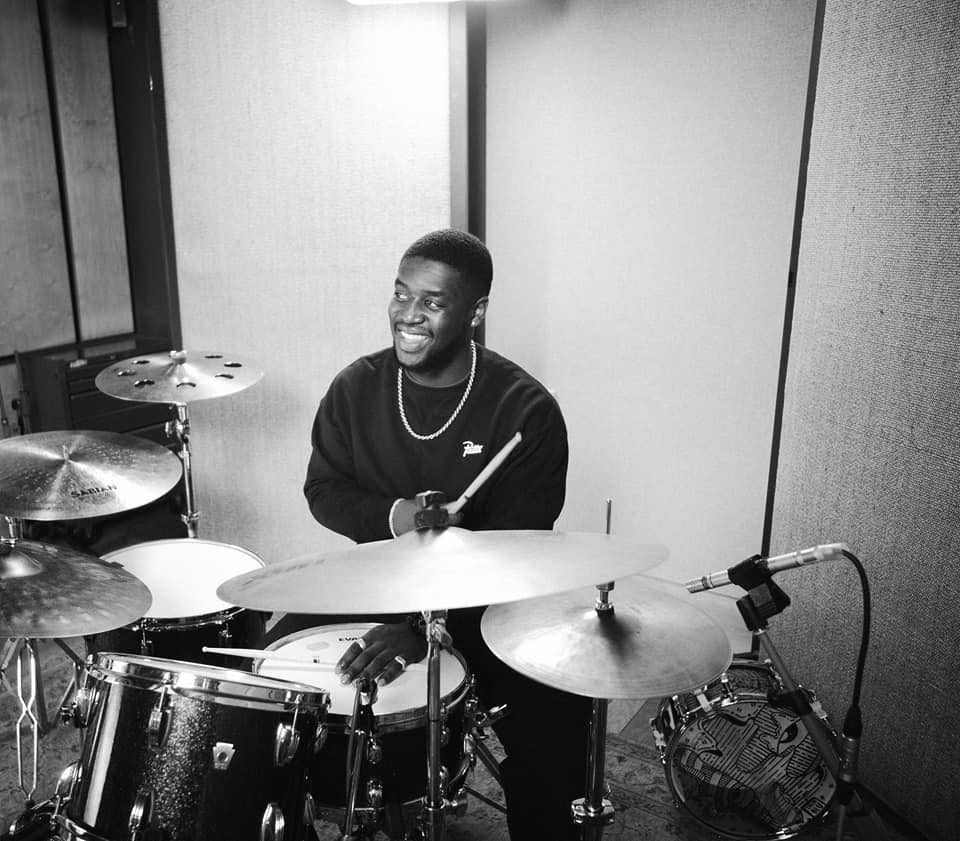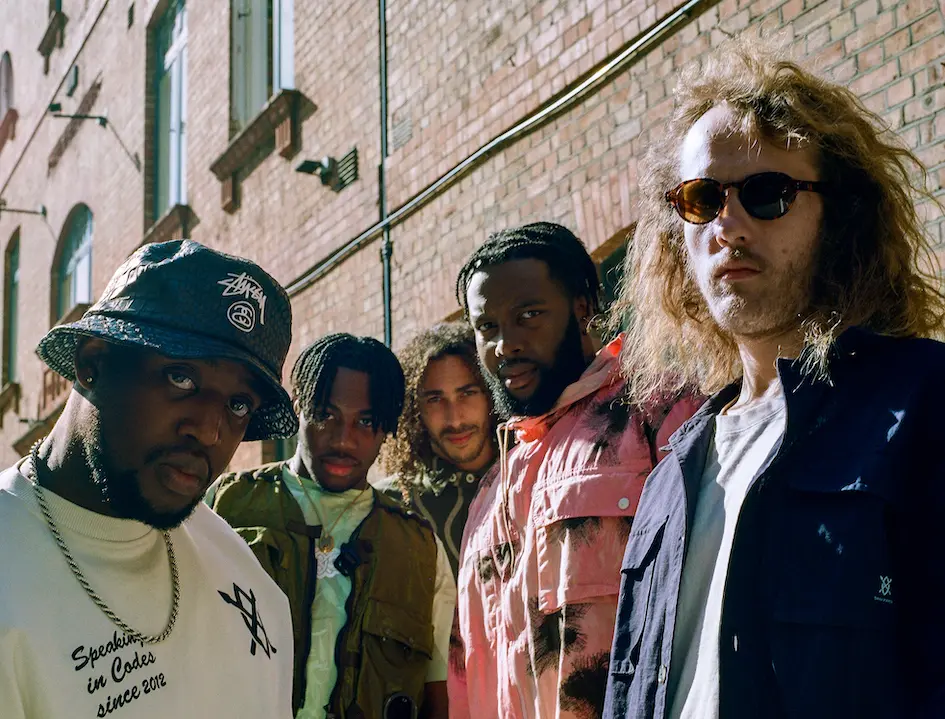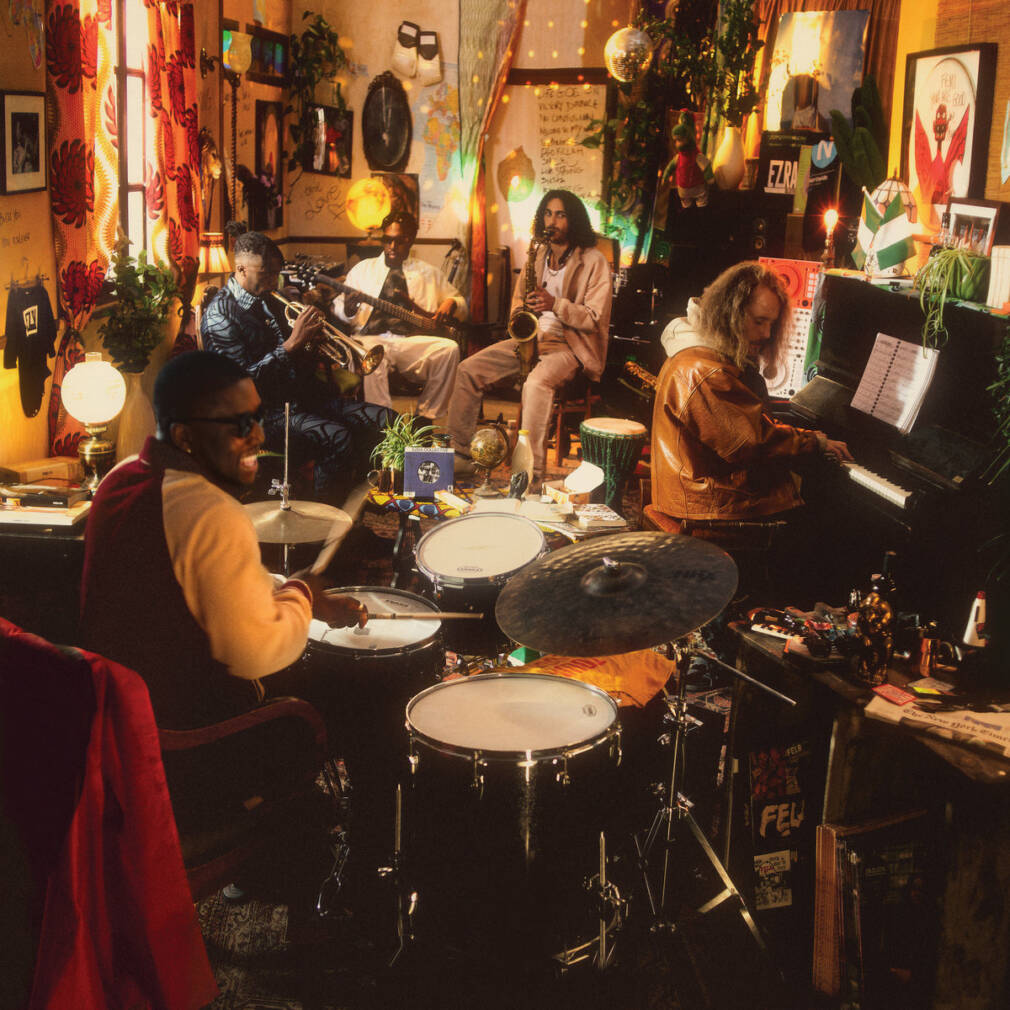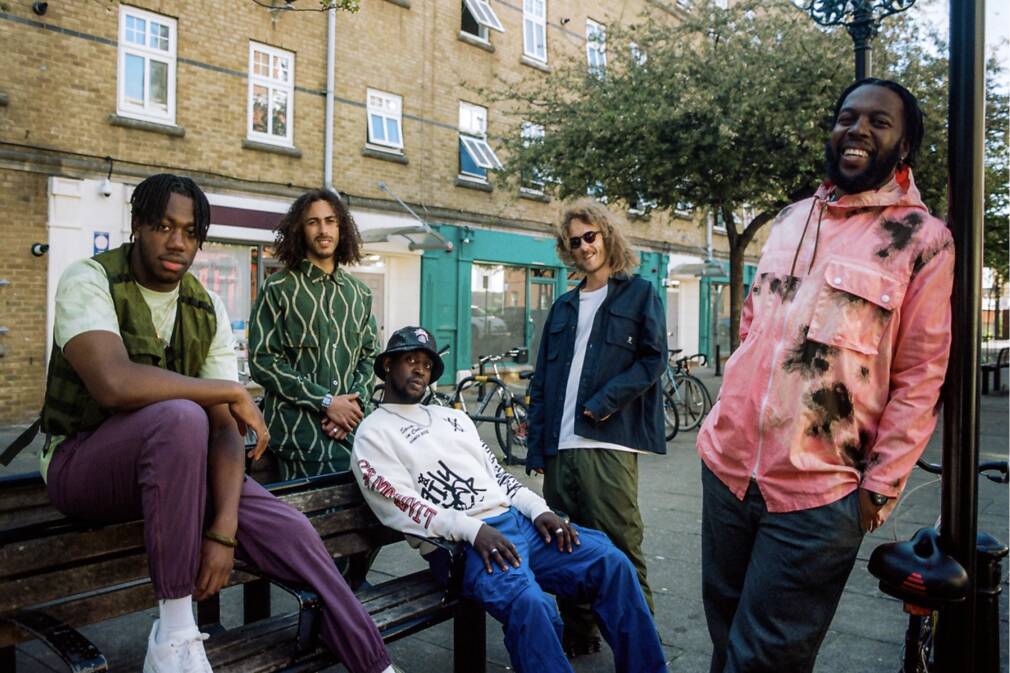The raspy percussion, gingerly saxophones and dramatic trumpets soar above the reputation of the record itself; it’s a refreshing take on Fela Kuti’s 1972 classic, “Lady.” As one of the most prominent British-based adherents of the Afrobeat genre, Ezra Collective strikes gold with this modern, stylistic remake of “Lady,” which was commissioned by the Fela Kuti estate.
“Our band has been paying tribute to Fela Kuti’s music since we first started releasing music,” Femi Koleoso, leader of the Afro-fusion quintet, said. The record is a lead single off the recent re-issue of Fela Kuti’s 1972 album, Shakara, in commemoration of the record’s 50-year anniversary as a vinyl release. Released both digitally and via a seven-inch vinyl pressing, via Partisan Records, the Ezra effect on “Lady” is both a magical and fiery twist to the controversial anti-feminist Fela Kuti record.
Across the myriads of Afrobeat adherents, the 5-member band stand out as one of the most respected collectives preserving the legacy of Fela Kuti. Led by the Nigerian-British singer, Femi Koleoso, alongside his brother TJ Koleoso, British keyboardist Joe Armon-Jones, British Saxist James Mollison and Nigerian trumpeter Ife Ogunjobi. Prominent for their youthful fusions and renditions of jazz, hip-hop, soul and Afrobeat, the group broke into London’s boisterous jazz scene with their 2019 official debut, You Can’t Steal My Joy. They had already been creating a solid buzz across Europe since 2016 with periodic recordings such as Chapter 7, Juan Pablo: The Philosopher, among others.
Their wildly energetic live gigs held Europe’s jazz scene spellbound on tour for several months. Their 2018 recordings such as Juan Pablo: The Philosopher also cemented their popularity as it clinched the award for the Best Jazz Album at the Gilles Peterson Worldwide Awards. Who are these jazz fusionists and how did they soar to the apogee of Afrobeat players across the globe?
“We met at a youth club called Tomorrow’s Warriors,” Femi Koleoso says. Deep within London’s cultural nerve centre, in South Banks, fate brought Femi and his brother with the other members of the collective. Run by prominent British Bassist Gary Cosby, the youth club represented something more than skill acquisition for the lads; it was a web of potentials that unlocked a jar-tight friendship that provided a breeding ground for their sonic radicalism.
Apart from heading the Ezra Collective, Femi Koleoso also plays the drums for Jorja Smith and tours globally with her. Having nurtured a friendship and acquaintances with the Afrobeat royalties including Fela Kuti’s drummer and co-pioneer of the genre, Tony Allen; as well as Fela Kuti’s offspring Femi Kuti (son), Seun Kuti (son), and Made Kuti (grandson), Koleoso’s vision for Afrobeat is rooted in purity for the philosophy that birthed the sound. For him, and the Ezra Collective, it is a mission to extend the sound, experimenting with the arsenal of sounds that appeal to them, from hip-hop to jazz, grime and soul. The group has also collaborated with some of the leaders of the new school including Kojey Radical, Sampa The Great, Nao, Emeli Sande, among others, on their 2022 sophomore album dubbed, Where I’m Meant To Be.
Catching up with Pan African Music, Femi Koleoso navigates the group’s inspirations, guiding philosophies, trajectory, creative process, as well as their mission to preserve and protect the rich legacy of Afrobeat.

What led to this moment?
It was coming up to the 5th year anniversary of the Shakara album by Fela Kuti, and his estate approached me to do a remix for it. They are going to put a special record to celebrate it. We did “Lady”, which is a song off the album. Our band has been paying tribute to Fela Kuti’s music since we first started releasing music. We have done remixes and covers. We have a version of “Colonial Mentality” and a version of “Shakara”. Fela Kuti’s estate is aware of the fact that we really do love his music and wish to preserve his legacy.
Why is it called Ezra Collective?
The reason it is called Ezra Collective is because Ezra was a prophet in the Christian Bible. The story of Ezra was that he studied the works of Nehemiah who came before him and he used that information to go forward. This is the same system that we use too; we study the greats that came before us. We are using that information to go forward. We are studying John Coltrain, Fela Kuti and all that. The plan, going forward, is to spread the gospel of good music to as many people. And I want to release this music to as many people as possible.
How did you meet other members of your band?
The bassist in the group is TJ, my younger brother. We were already making music together, since his childhood. We met the others at a youth club in London called Tomorrow’s Warriors. That youth club was basically designed to teach young people Jazz Music for free. I fell in love with Jazz initially, and that was how we all met.

At what point in your life did you start playing Afrobeat?
I am Nigerian. My dad would play Fela Kuti’s music when I was age 3 or 4. Fela Kuti’s music was my first love. Once I started to play the drums around that same age that was already what was in my blood and in my mind.
When did you decide to go professionally?
It was when I was in secondary school. It was around 14-16. I started to see people who looked like me and were from the same area as me pursue music professionally. I dreamt of it for myself. I needed to see it to be it.
So, why Afrobeat?
I do not consider myself an Afrobeat artist. I am a musician that loves Afrobeat. A lot of my records have been jazz records, influenced by hip-hop and other genres. The reason I gravitate towards Afrobeat is because I believe that if there was a music genre that captured my identity it would be Afrobeat. Being Nigerian and growing up in London, it is very similar to the story of Afrobeat and Nigerian music. So many iconic moments happened in London. If you remember, some of Fela Kuti’s records were recorded in Abbey Road, London. For me, Afrobeat gives me a sense of identity far more powerful than any other type of music I do. As much as I love jazz, it is still American. I am not American. I love other forms of music, like hip-hop, grime, and so on; and they are definitely in me. However, by way of my identity, Afrobeat encapsulates it the best.
Ever going to work with Fela’s children who now play Afrobeat?
I went to university with Made Kuti. We studied at the same time at Trinity School of Music. So, that relationship was formed in a strong way while he was here in London. Seun Kuti is a good friend of mine. Femi Kuti is someone I am yet to spend time with, but he knows I love his music. I would love to work with all of them; it will be a real dream of mine, and I am hoping it happens soon. I reached out to them before, but due to the pandemic it did not work out.
Any plans of touring in Africa?
That really is the dream. I want to start in Nigeria. I was in Lagos, in December. I am hoping to get some bookings. We were meant to do a Jazz Festival in Cape Town, but sadly it was cancelled. I am African and I need to go back home to perform. I am hoping it will happen this year.
Any musicians from your home country that you admire?
I love the music of Tiwa Savage, The Cavemen, Burna Boy, Wizkid, Made Kuti, Lagos Thugs, Uncle Tony Allen, Dele Sosimi, Bukky Leo, Black Egypt, and a lot of others. There are not many countries in the world with such a rich lineage of musicians.
So, what is the vision for Ezra Collective?
At the core of it, it is to always have integrity in all we do. It is mostly about having integrity in our music and the decisions we take. I do not care about awards or nominations; what I care about is music really. And I need it to be heard by the people that love it the most, rather than chasing after the glitz and glamour of the industry.
Listen to Ezra Collective’s Where I’m Meant To Be out now.





